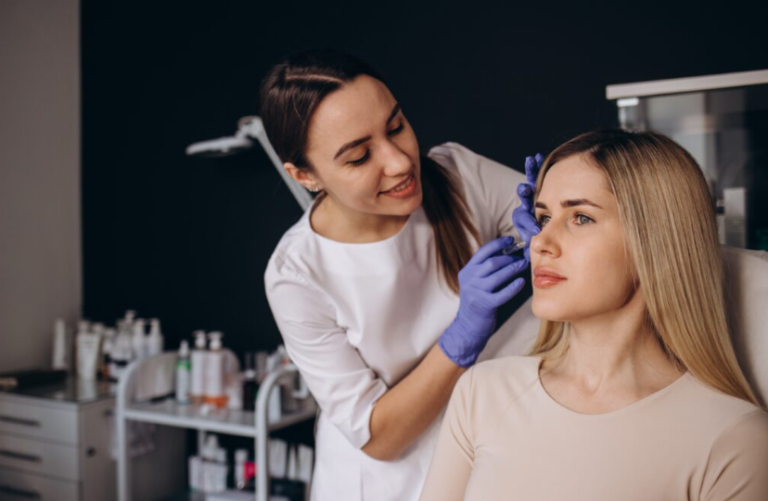The Connection Between Dermatology and Overall Skin Care
Your skin reflects your overall health more than you might realize. Dermatology provides scientific insights that extend far beyond treating surface-level problems. This medical specialty connects the dots between what happens inside your body and what appears on your skin. Understanding this relationship helps you make informed decisions about your skin care routine and when to seek professional help.
How Does Dermatology Improve Skin?
Dermatological expertise provides a more comprehensive approach to skin health by addressing the root causes rather than just the surface-level symptoms. Dermatologists use scientific assessments to analyze your skin type, concerns, and medical history, creating personalized treatment plans tailored to your unique needs. Their use of professional-grade treatments with active ingredients provides measurable results that surpass those of over-the-counter products. Regular evaluations also enable the early detection of skin changes, preventing minor issues from developing into major concerns.
Unlike cosmetic solutions that primarily target appearance, dermatology addresses the underlying factors affecting long-term skin health. Customized protocols verify that treatments are optimized for each individual, acknowledging that every person’s skin responds differently. This medical approach not only improves skin function but also delivers sustainable, long-lasting results. By prioritizing the biology of your skin, dermatology provides a comprehensive path to healthier, more resilient skin.
What Treatments Support Healthy Skin?
Modern dermatological treatments combine proven medical techniques with cutting-edge technology to support your skin’s natural healing and renewal processes. These approaches target specific skin concerns while promoting overall skin health.
- Topical Medications: Prescription creams and serums contain active ingredients like retinoids and antioxidants that penetrate deeper than standard cosmetic products.
- Light-Based Therapies: LED treatments and laser procedures stimulate cellular renewal and collagen production without invasive procedures.
- Chemical Peels: Professional-strength peeling agents remove damaged skin layers and encourage healthy cell turnover for improved texture and tone.
- Injectable Treatments: Dermal fillers and neurotoxins address volume loss and dynamic wrinkles while maintaining natural facial expressions.
These treatment options are most effective when used in conjunction with proper daily skin care routines. Your dermatologist can recommend specific products that complement professional treatments and support your skin’s healing process between appointments. The synergy between professional treatments and consistent home care maximizes your investment in skin health.
See also: Lucy Payton @ HealthSciencesForum: Transforming Health Education for Everyone
When Should Patients Seek Care?
Taking care of your skin is pivotal, and knowing when to see a dermatologist can make all the difference. While self-care and over-the-counter treatments can handle some concerns, there are times when professional evaluation is necessary to maintain healthy, radiant skin.
- New or changing moles: Moles that change in size, color, or shape could be signs of a serious condition, like skin cancer. A dermatologist can assess them for early detection and treatment.
- Persistent acne: When acne doesn’t improve with store-bought products, prescription treatments, or procedures might be needed to clear your skin effectively.
- Unusual skin growths: Any unexpected growths, rashes, or discolorations should be checked by a professional to rule out underlying health issues.
- Age-related changes: Wrinkles, sun damage, and skin laxity often require dermatologist-recommended treatments like lasers or chemical peels to slow and reverse these effects.
- Family history of skin cancer: Regular screenings are key for early detection, especially if skin cancer runs in your family, even if your skin seems fine.
Seeing a dermatologist when these signs appear helps you address problems early, prevent serious concerns, and keep your skin in its best condition. Proactive care leads to long-term health and confidence!
Visit a Specialist
Dermatology goes beyond treating current skin issues—it’s key to preventing future problems and maintaining long-term skin health. By understanding your skin’s unique needs through professional guidance, you can avoid wasting time and money on ineffective products and instead focus on targeted treatments backed by medical expertise. A dermatologist provides solutions tailored to your concerns, helping you achieve better results with less trial and error. Take the next step in your skincare journey by consulting a qualified dermatologist and investing in your skin’s health for years to come.






